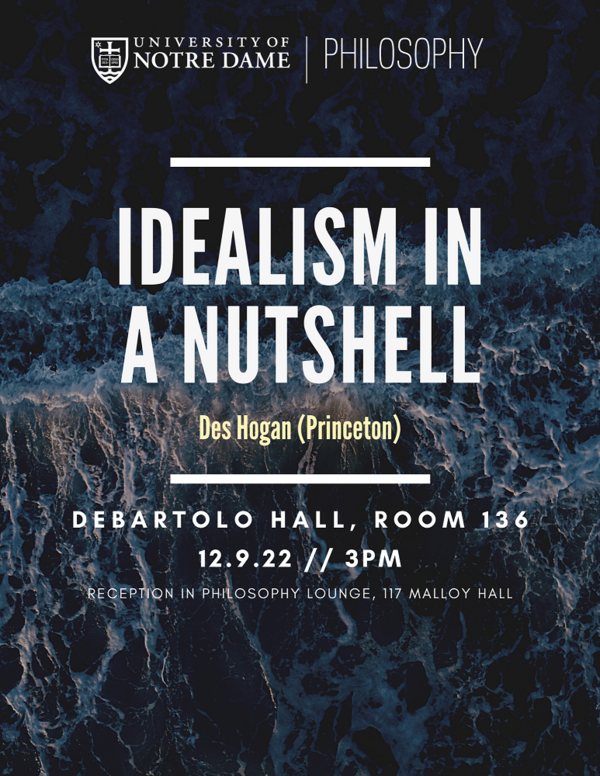Guest Speaker Prof. Des Hogan (Princeton)

Guest Speaker Prof. Des Hogan (Princeton) will be giving a talk on Friday, December 9th at 3pm in DeBartolo Hall, room 136. Talk Title is Idealism in a Nutshell. Please see abstract below.
Abstract
The significance or vacuity of the statement, “Everything has just doubled in size,” attracted considerable attention last century from philosophically-minded scientists and philosophers. Presenting his influential conventionalism in geometry, Poincaré insisted on the emptiness of a hypothesis that all objects have doubled in size. Such universal expansion could have meaning, he asserted, “only for those who reason as if space were absolute … it would be better to say that space being relative, nothing at all has happened.” Schlick, Reichenbach and Grünbaum would concur, presenting the universal doubling hypothesis as illustrating the intrinsic metrical amorphousness of continuous manifolds. The logical empiricists traced this insight to Riemann’s observation in his celebrated inaugural lecture that the metric for a continuous manifold, “must be brought in from elsewhere [anders woher hinzukommen muß].” For physical space, Riemann had added prophetically, we must factor in influences of “binding forces” on chosen congruence standards.
Given the place of the universal expansion thought experiment in twentieth century philosophy and physics, it is striking to find Kant invoking a universal contraction in space and time to support his famous doctrine of transcendental idealism. In one of a series of passages completely neglected in an extensive scholarship on his philosophy, Kant writes: “The proof that the things in space and time are mere appearances can also be grounded on the fact that the whole world could be contained in a nutshell and the entirety of elapsed time in a second without the least difference being met with.” The meaning of this provocative claim is unclear. The consideration raised bears no obvious relation to familiar if still heavily contested idealist arguments at the heart of the Critique of Pure Reason. Kant’s “also” in the passage above might be taken to suggest an idealist argument distinct from any of published works. In this paper I will ask: What is the meaning of Kant’s Nutshell Argument for Idealism?